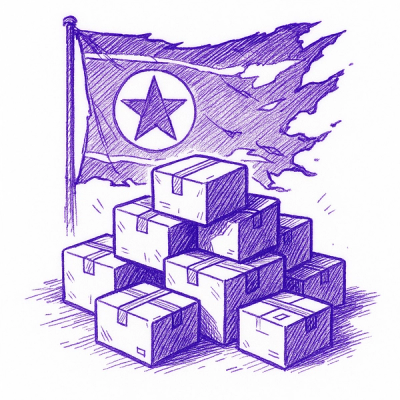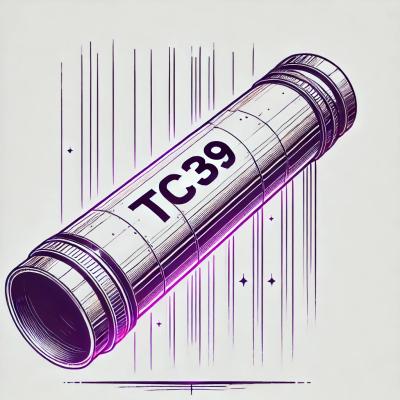
Security News
NVD Quietly Sweeps 100K+ CVEs Into a “Deferred” Black Hole
NVD now marks all pre-2018 CVEs as "Deferred," signaling it will no longer enrich older vulnerabilities, further eroding trust in its data.
📚 Documentation | 💡 Examples | 🤝 Contributing | 📝 Cite paper | 💬 Join Discord
AG2 was evolved from AutoGen. Fully open-sourced. We invite collaborators from all organizations to contribute.
AG2 (formerly AutoGen) is an open-source programming framework for building AI agents and facilitating cooperation among multiple agents to solve tasks. AG2 aims to streamline the development and research of agentic AI. It offers features such as agents capable of interacting with each other, facilitates the use of various large language models (LLMs) and tool use support, autonomous and human-in-the-loop workflows, and multi-agent conversation patterns.
The project is currently maintained by a dynamic group of volunteers from several organizations. Contact project administrators Chi Wang and Qingyun Wu via support@ag2.ai if you are interested in becoming a maintainer.
For a step-by-step walk through of AG2 concepts and code, see Basic Concepts in our documentation.
AG2 requires Python version >= 3.9, < 3.14. AG2 is available via ag2 (or its alias pyautogen or autogen) on PyPI.
pip install ag2[openai]
Minimal dependencies are installed by default. You can install extra options based on the features you need.
To keep your LLM dependencies neat we recommend using the OAI_CONFIG_LIST file to store your API keys.
You can use the sample file OAI_CONFIG_LIST_sample as a template.
[
{
"model": "gpt-4o",
"api_key": "<your OpenAI API key here>"
}
]
Create a script or a Jupyter Notebook and run your first agent.
from autogen import AssistantAgent, UserProxyAgent, LLMConfig
llm_config = LLMConfig.from_json(path="OAI_CONFIG_LIST")
with llm_config:
assistant = AssistantAgent("assistant")
user_proxy = UserProxyAgent("user_proxy", code_execution_config={"work_dir": "coding", "use_docker": False})
user_proxy.initiate_chat(assistant, message="Plot a chart of NVDA and TESLA stock price change YTD.")
# This initiates an automated chat between the two agents to solve the task
We maintain a dedicated repository with a wide range of applications to help you get started with various use cases or check out our collection of jupyter notebooks as a starting point.
We have several agent concepts in AG2 to help you build your AI agents. We introduce the most common ones here.
The conversable agent is the most used agent and is created for generating conversations among agents. It serves as a base class for all agents in AG2.
from autogen import ConversableAgent
with llm_config:
# Create an AI agent
assistant = ConversableAgent(
name="assistant",
system_message="You are an assistant that responds concisely.",
)
# Create another AI agent
fact_checker = ConversableAgent(
name="fact_checker",
system_message="You are a fact-checking assistant.",
)
# Start the conversation
assistant.initiate_chat(
recipient=fact_checker,
message="What is AG2?",
max_turns=2
)
Sometimes your wished workflow requires human input. Therefore you can enable the human in the loop feature.
If you set human_input_mode to ALWAYS on ConversableAgent you can give human input to the conversation.
There are three modes for human_input_mode: ALWAYS, NEVER, TERMINATE.
We created a class which sets the human_input_mode to ALWAYS for you. Its called UserProxyAgent.
from autogen import ConversableAgent
# Create an AI agent
with llm_config:
assistant = ConversableAgent(
name="assistant",
system_message="You are a helpful assistant.",
)
# Create a human agent with manual input mode
human = ConversableAgent(
name="human",
human_input_mode="ALWAYS"
)
# or
human = UserProxyAgent(name="human", code_execution_config={"work_dir": "coding", "use_docker": False})
# Start the chat
human.initiate_chat(
recipient=assistant,
message="Hello! What's 2 + 2?"
)
Users can define their own orchestration patterns using the flexible programming interface from AG2.
Additionally AG2 provides multiple built-in patterns to orchestrate multiple agents, such as GroupChat and Swarm.
Both concepts are used to orchestrate multiple agents to solve a task.
The group chat works like a chat where each registered agent can participate in the conversation.
from autogen import ConversableAgent, GroupChat, GroupChatManager
# Create AI agents
teacher = ConversableAgent(name="teacher", system_message="You suggest lesson topics.")
planner = ConversableAgent(name="planner", system_message="You create lesson plans.")
reviewer = ConversableAgent(name="reviewer", system_message="You review lesson plans.")
# Create GroupChat
groupchat = GroupChat(agents=[teacher, planner, reviewer], speaker_selection_method="auto")
# Create the GroupChatManager, it will manage the conversation and uses an LLM to select the next agent
manager = GroupChatManager(name="manager", groupchat=groupchat)
# Start the conversation
teacher.initiate_chat(manager, "Create a lesson on photosynthesis.")
The swarm requires a more rigid structure and the flow needs to be defined with hand-off, post-tool, and post-work transitions from an agent to another agent.
Read more about it in the documentation
Agents gain significant utility through tools as they provide access to external data, APIs, and functionality.
from datetime import datetime
from typing import Annotated
from autogen import ConversableAgent, register_function
# 1. Our tool, returns the day of the week for a given date
def get_weekday(date_string: Annotated[str, "Format: YYYY-MM-DD"]) -> str:
date = datetime.strptime(date_string, "%Y-%m-%d")
return date.strftime("%A")
# 2. Agent for determining whether to run the tool
with llm_config:
date_agent = ConversableAgent(
name="date_agent",
system_message="You get the day of the week for a given date.",
)
# 3. And an agent for executing the tool
executor_agent = ConversableAgent(
name="executor_agent",
human_input_mode="NEVER",
)
# 4. Registers the tool with the agents, the description will be used by the LLM
register_function(
get_weekday,
caller=date_agent,
executor=executor_agent,
description="Get the day of the week for a given date",
)
# 5. Two-way chat ensures the executor agent follows the suggesting agent
chat_result = executor_agent.initiate_chat(
recipient=date_agent,
message="I was born on the 25th of March 1995, what day was it?",
max_turns=1,
)
AG2 supports more advanced concepts to help you build your AI agent workflows. You can find more information in the documentation.
🔥 🎉 Nov 11, 2024: We are evolving AutoGen into AG2! A new organization AG2AI is created to host the development of AG2 and related projects with open governance. Check AG2's new look.
📄 License: We adopt the Apache 2.0 license from v0.3. This enhances our commitment to open-source collaboration while providing additional protections for contributors and users alike.
🎉 May 29, 2024: DeepLearning.ai launched a new short course AI Agentic Design Patterns with AutoGen, made in collaboration with Microsoft and Penn State University, and taught by AutoGen creators Chi Wang and Qingyun Wu.
🎉 May 24, 2024: Foundation Capital published an article on Forbes: The Promise of Multi-Agent AI and a video AI in the Real World Episode 2: Exploring Multi-Agent AI and AutoGen with Chi Wang.
🎉 Apr 17, 2024: Andrew Ng cited AutoGen in The Batch newsletter and What's next for AI agentic workflows at Sequoia Capital's AI Ascent (Mar 26).
This project uses pre-commit hooks to maintain code quality. Before contributing:
pip install pre-commit
pre-commit install
pre-commit run --all-files
AutoGen: Enabling Next-Gen LLM Applications via Multi-Agent Conversation
EcoOptiGen: Hyperparameter Optimization for Large Language Model Generation Inference
MathChat: Converse to Tackle Challenging Math Problems with LLM Agents
AgentOptimizer: Offline Training of Language Model Agents with Functions as Learnable Weights
StateFlow: Enhancing LLM Task-Solving through State-Driven Workflows
@software{AG2_2024,
author = {Chi Wang and Qingyun Wu and the AG2 Community},
title = {AG2: Open-Source AgentOS for AI Agents},
year = {2024},
url = {https://github.com/ag2ai/ag2},
note = {Available at https://docs.ag2.ai/},
version = {latest}
}
This project is licensed under the Apache License, Version 2.0 (Apache-2.0).
This project is a spin-off of AutoGen and contains code under two licenses:
The original code from https://github.com/microsoft/autogen is licensed under the MIT License. See the LICENSE_original_MIT file for details.
Modifications and additions made in this fork are licensed under the Apache License, Version 2.0. See the LICENSE file for the full license text.
We have documented these changes for clarity and to ensure transparency with our user and contributor community. For more details, please see the NOTICE file.
FAQs
A programming framework for agentic AI
We found that pyautogen demonstrated a healthy version release cadence and project activity because the last version was released less than a year ago. It has 1 open source maintainer collaborating on the project.
Did you know?

Socket for GitHub automatically highlights issues in each pull request and monitors the health of all your open source dependencies. Discover the contents of your packages and block harmful activity before you install or update your dependencies.

Security News
NVD now marks all pre-2018 CVEs as "Deferred," signaling it will no longer enrich older vulnerabilities, further eroding trust in its data.

Research
Security News
Lazarus-linked threat actors expand their npm malware campaign with new RAT loaders, hex obfuscation, and over 5,600 downloads across 11 packages.

Security News
Safari 18.4 adds support for Iterator Helpers and two other TC39 JavaScript features, bringing full cross-browser coverage to key parts of the ECMAScript spec.